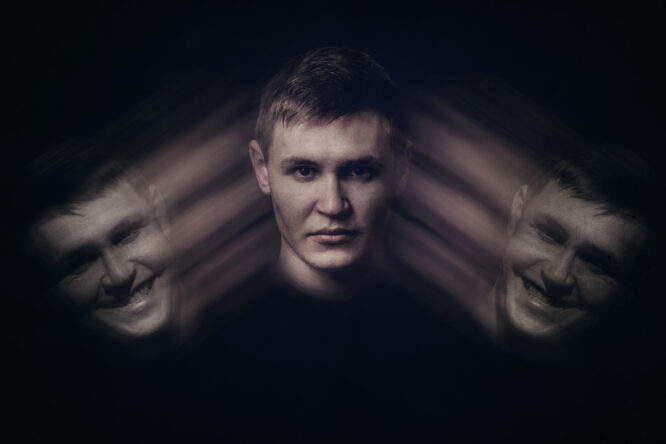When people think of neurodivergence, ADHD and autism are often the first things that come to mind.

While these are two of the most well-known conditions that fall under the neurodivergent umbrella, they’re not the only ones. The truth is, neurodivergence covers a wide range of brain differences, and many people fit the description without having an easily diagnosable condition. If you’ve ever felt like your brain works differently but don’t quite relate to those specific labels, here are just a few reasons why you could still be neurodivergent.
1. You experience sensory sensitivities in unexpected ways.

Many people assume sensory issues are exclusive to autism, but that’s not true. Sensory processing differences can exist in people with anxiety, OCD, PTSD, or even no formal diagnosis at all. If bright lights, loud noises, certain textures, or strong smells feel overwhelming or exhausting, your brain might be wired to process sensory input differently. Some people are highly sensitive to touch, struggling with certain fabrics or the feeling of tags on clothing. Others may find certain noises physically painful or feel irritated by background sounds that no one else notices. If sensory input regularly impacts your comfort or focus, it could be a sign of neurodivergence.
2. Your brain has a non-stop internal dialogue.

Not everyone experiences their thoughts in the same way, and some people have an internal monologue that never seems to slow down. If your brain constantly runs through ideas, conversations, or self-reflection, it might be functioning differently from the neurotypical norm. While this can sometimes be helpful, it can also be exhausting. Some people replay social interactions in detail, overthink simple decisions, or struggle to “switch off” even when they’re tired. Others may find that their thoughts race at high speed, jumping between topics before they can fully process one idea. If your brain is always busy, it might be part of a broader neurodivergent experience.
3. You struggle with executive function, even if it’s not ADHD.

Executive dysfunction is often linked to ADHD, but many other neurodivergent conditions impact a person’s ability to plan, start, and complete tasks. If you struggle with organisation, time management, or prioritising responsibilities, it could be a sign of neurodivergence, even if ADHD doesn’t fully explain it. Conditions like OCD, depression, and anxiety can also affect executive function in different ways. Some people find it impossible to start tasks, even when they know they’re important. Others get stuck in cycles of perfectionism, unable to move forward unless everything feels exactly right. If your brain resists certain tasks, despite knowing what needs to be done, it could be part of a neurodivergent pattern.
4. You process emotions more intensely than most people.

Not everyone experiences emotions in the same way, and some neurodivergent people feel things much more deeply than other people. If your emotions hit extra hard — whether it’s joy, sadness, anger, or anxiety — you might have a brain that processes feelings differently. This is common in people with high sensitivity, bipolar disorder, or even some forms of dyslexia. Intense emotions can be both a strength and a challenge. On one hand, it can make you incredibly empathetic and passionate. On the other, it can make it tough to regulate feelings, leading to emotional exhaustion or difficulty explaining why you’re reacting so strongly to something.
5. You struggle with verbal communication but do well in other forms.

Neurodivergence isn’t just about how you think; it’s also about how you communicate. Some people struggle with spoken words, finding it easier to express themselves through writing, art, or non-verbal cues. This isn’t limited to autism; conditions like dyspraxia, social anxiety, and even auditory processing disorders can all affect speech in different ways. If you often feel misunderstood in conversations, need extra time to put thoughts into words, or prefer texting over talking, it might be a sign of neurodivergence. The way your brain processes and delivers communication can be different without fitting into a specific diagnosis.
6. You have a unique relationship with time.

Some neurodivergent people experience time differently, struggling to estimate how long things will take or feeling disconnected from schedules and deadlines. This isn’t just an ADHD trait; it’s also common in dyslexia, dyspraxia, and various mental health conditions. Time can feel either too fast, too slow, or impossible to track. If you often lose track of time, underestimate how long tasks will take, or struggle with punctuality despite trying your best, your brain might process time in a way that differs from the norm. Many people with neurodivergence need external tools, like timers or reminders, to stay on top of time-sensitive tasks.
7. You find it hard to recognise faces or remember names.

Prosopagnosia, also known as face blindness, is a form of neurodivergence that makes it hard to recognise faces, even those of people you know well. While some people naturally struggle with remembering names, prosopagnosia takes it to another level, where familiar faces might look completely unfamiliar in different contexts. People with face blindness often rely on other cues, like voice, hair, or body language, to identify people. You’re not necessarily forgetful; it’s just your brain struggling to store and retrieve facial recognition information. It can make social situations more stressful, especially when meeting new people.
8. You have an unusual way of processing numbers or reading.

Conditions like dyslexia and dyscalculia fall under the neurodivergent umbrella, even though they aren’t linked to ADHD or autism. Dyslexia affects reading and writing, making it harder to process letters and words, while dyscalculia impacts numerical understanding, making math feel confusing or illogical. People with these conditions often find alternative ways to learn and work around their difficulties. They might prefer audiobooks over reading, or rely on visual aids for maths. If traditional learning methods never worked for you, but you thrived with different approaches, it could be a sign of neurodivergence.
9. You have hyperfocus, but only on certain topics.

While ADHD is known for attention struggles, not all neurodivergent people experience distractibility. Some actually have the opposite problem: hyperfocus. That means getting so absorbed in something that you forget to eat, sleep, or notice time passing. Hyperfocus is often linked to passion projects, hobbies, or areas of deep interest. It can be a strength when used productively but frustrating when it makes it difficult to shift attention when needed. If you’ve ever been so immersed in something that the world disappears, this could be a neurodivergent trait.
10. You have unique learning preferences that don’t fit traditional methods.

Neurodivergent brains often absorb and process information in ways that don’t align with traditional teaching methods. You might learn best through hands-on experience, need extra visual aids, or require repetition before things truly stick. Schools and workplaces often don’t accommodate these differences, making learning feel frustrating. Many neurodivergent people thrive when they find the right environment that caters to their style. If you struggled in school but excelled in self-directed learning, it’s worth considering whether your brain is wired differently. Learning differences are a major sign of neurodivergence, even without ADHD or autism.
11. You feel disconnected from social norms and expectations.

Some people find social rules confusing, frustrating, or simply unnecessary. You might struggle with understanding unspoken social expectations or feel drained by social interactions that seem effortless for other people. While this is common in autism, it also applies to those with social anxiety, dyspraxia, and other forms of neurodivergence. If socialising feels like a skill rather than something natural, it could be a sign your brain processes social interactions differently. Neurodivergence often affects how people relate to other people.




